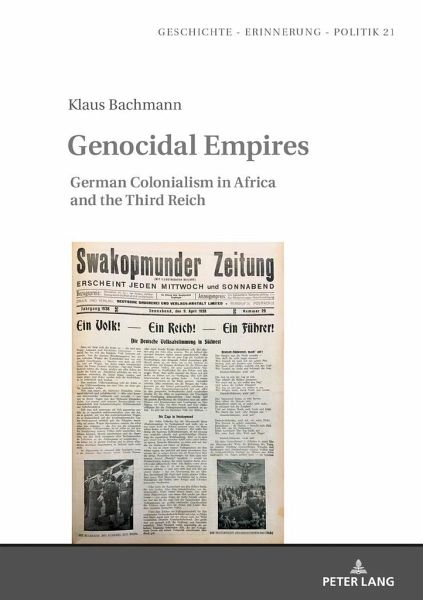
Genocidal Empires
German Colonialism in Africa and the Third Reich
Herausgegeben: Wolff-Poweska, Anna
Versandkostenfrei!
Versandfertig in 6-10 Tagen
76,30 €
inkl. MwSt.

PAYBACK Punkte
0 °P sammeln!
Between 1904 and 1907, German soldiers, settlers and mercenaries committed mass murder in Africa. Can this be considered the first genocide of the 20th century? Was it a forecast of the Third Reich's extermination policy in Central and Eastern Europe? This book provides the answer. Based on extensive archival and library research in Tanzania, Namibia, South Africa, Germany and Poland as well as on the most recent and up-to-date jurisprudence of international criminal tribunals, the renowned historian and political scientist Klaus Bachmann paints a new and surprising picture of the events and t...
Between 1904 and 1907, German soldiers, settlers and mercenaries committed mass murder in Africa. Can this be considered the first genocide of the 20th century? Was it a forecast of the Third Reich's extermination policy in Central and Eastern Europe? This book provides the answer. Based on extensive archival and library research in Tanzania, Namibia, South Africa, Germany and Poland as well as on the most recent and up-to-date jurisprudence of international criminal tribunals, the renowned historian and political scientist Klaus Bachmann paints a new and surprising picture of the events and their legal significance, which many will find disturbing and provocative. It abolishes many well-established interpretations about German colonialism and its alleged links with the Third Reich and provides a new and intriguing contribution to the current post-colonial debate.














